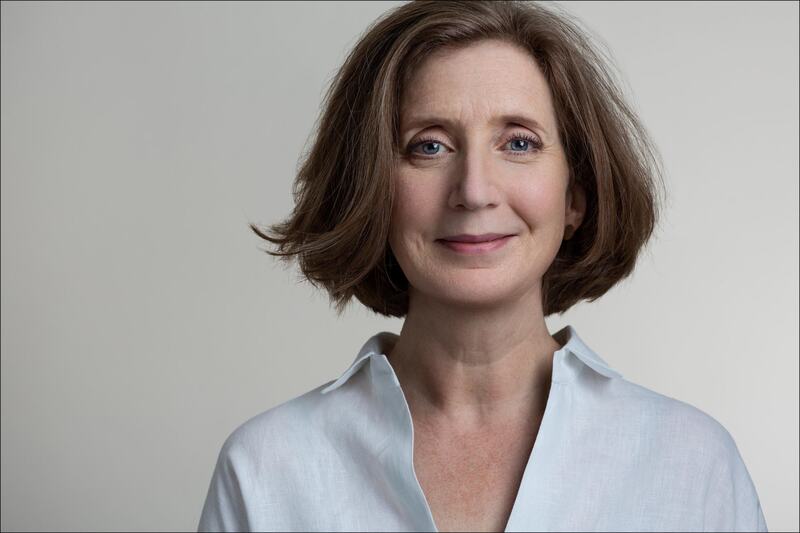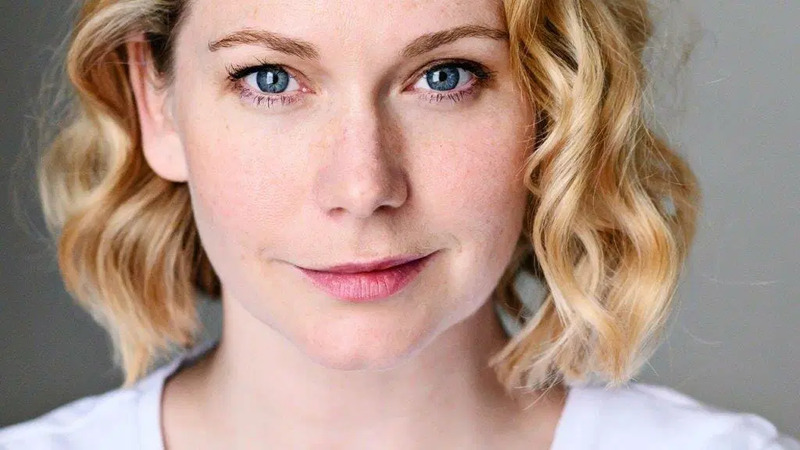We chat with Nancy Crane about the "truly remarkable" (WhatsOnStage) production Kyoto, which transfers to the West End this month following its critically acclaimed run at the Royal Shakespeare Company in Stratford-upon-Avon last year.
 Nancy Crane headshot.
Nancy Crane headshot.
Kyoto is a gripping new political thriller set against the backdrop of the 1997 UN climate conference in Kyoto, Japan. The play explores the intense negotiations among global leaders as they work to establish the first legally binding emissions targets, shedding light on the challenges and intricacies of international climate agreements. To find out more about this production ahead of its limited run, Nancy Crane tells us more about her character USA and what London audiences can expect from this play.
How does it feel to be reprising your role in The RSC’s production of Kyoto when it transfers to the West End early next year?
It’s an absolute a gift to revisit Kyoto. The script changed so much during the original rehearsals it could sometimes feel like chasing a runaway train. It’s wonderful this time around to able to saunter aboard and look out the window and say, “Ah ha - this is what that line means!”
For those who don’t know a lot about Kyoto, can you tell us a little bit about what it is about?
It’s about the signing of the Kyoto Protocol in December 1997 which committed countries to reducing their greenhouse emissions. So, it’s about agreement - the first time in human history mankind ever agreed to act together. Another way of putting it is a workplace comedy about the most critical issue of our time.
You play the role of USA, can you tell us what attracted you to the character and any influences you used to develop them?
The attraction was the thrill of working with directors Stephen Daldry and Justin Martin and the writers, the brilliant Joes - Robertson and Murphy. There had already been several workshops for the play when I took part in the last one. From the start, working with those four was like breathing pure oxygen – exhilarating, and a little scary too. The role of USA was originally written for a man, bur for the final workshop they decided to see what a woman would be like. They stuck with the choice. The Joes renamed her Sue as a nod to Stu Eizenstat, the extraordinary American diplomat who was at Kyoto, and also the amazing Sue Biniaz, a US climate lawyer and negotiator. As a sidebar, Sue Biniaz saw the show at Stratford and I missed her because I didn’t check my messages. Doh! I must also add that the USA’s Tourette’s-like proclivities are all me.
How did you use your skills as an actor to prepare for the complexities of this role, especially given it has a lot of strong political and environmental themes?
The skills I’ve used in probably every other show – creating character, harnessing emotion – don’t actually work with Kyoto. It goes at such a clip there isn’t time. It’s highly choreographed and if you lose concentration for a second the whole thing can derail. So, the show, in the most essential way, is about reacting in the moment with precision - which I think is pretty much the ideal for all performance. The speed and complexity of the show are part of the exhilaration of both playing and watching it.
What has been the most challenging aspect of portraying USA, and how have you approached it?
Speed, precision, concentration. Oh, and profanity. Although, that’s not such a challenge…
How does Kyoto reflect the current global climate crisis, and what role does your character play in highlighting these issues?
The play is framed by the story of Don Pearlman, an oil lobbyist who worked to derail agreement between countries. He may have lost in Kyoto, but after the recent and disappointing COP29 in Baku it’s clear Don’s playbook is alive and well and being used today. My character is a career negotiator and, despite whatever she might think personally, she has to work within US policy constraints. In Sue’s case, she starts off with the Republican George Bush Sr. administration and ends up working for Clinton and Gore, but with an obstreperous Republican-majority in Congress that’s hostile to climate legislation. However, to quote Don from the beginning of Kyoto, the chaos and greed and anomie we’re about to encounter with the incoming Trump administration make the 1990s look freakin’ glorious.
How has this role challenged or changed your perspective on the issues addressed in the play?
I now have a deep appreciation of the gruelling work done by people who broker agreement behind the scenes. They give up personal lives, travelling non-stop (not getting jetlag seems like a prerequisite) and hammering out agreements even when they don’t trust each other, don’t agree with each other and, in some cases, don’t like each other. But, in the words of the EU’s former chief diplomat Baroness Cathy Ashton (who took part in a day of events organised in Stratford by our incredible co-producer, Good Chance), “There is no issue we face today that we can tackle alone.” Our survival depends on finding ways of working together.
As you are returning to the role do you think you bring anything new or different to the production this time around?
Three members of the original cast weren’t able to do the transfer because of other commitments, so we have three wonderful new cast members – Aicha Kossoko, Kristin Atherton and Duncan Wisbey. The former cast members are sorely missed! But it’s been fascinating to rehearse the play with the very different energy these actors bring. Plus the fact that Duncan is a multi-instrumentalist means that, at the moment (bear in mind things change a lot in Kyotoworld), a whole new piece of set has been added to accommodate Dunc’s drumkit & saxophone!
What do you hope audiences will take away from Kyoto and from your character USA?
The fact that agreement is possible. We get a fleeting glimpse of what Sue personally thinks, but her job is at the cliff face, chiselling out agreement in increments where none seems possible. It might be messy, imperfect, but once you move forward one step, you can start chiselling the next step. It’s how diplomacy works. And the amazing thing is, in this time of polarisation and sound bites, this kind of messy, collective agreement is the only thing that actually works.
What excites you most about bringing Kyoto to the stage, and what has this experience meant to you as an actor?
Kyoto is a rare thing, a profoundly political play that isn’t polemical. It presents the facts (and the two Joe and Joe and their superb dramaturg Gemma Stockwood are experts in the facts). And facts are intrinsic to the production, embedded in Miriam Beuther’s ingenious set and Akhila Krishnan’s innovative video design. The crucial thing, however, is that the play allows audiences to make up their own minds. It reminds me of Angels in America, which I did at the NT in the 1990s. They’re very different plays but are both fired with the same urgency. Getting to do work like this is why I’m an actor.
Finally, why should people come and see Kyoto at @sohoplace ?
This play is about agreement. The world did it once and we can do it again. Doing the play I feel that agreement in my bones every night. And audiences should come to feel its power and remember this simple, miraculous fact.



